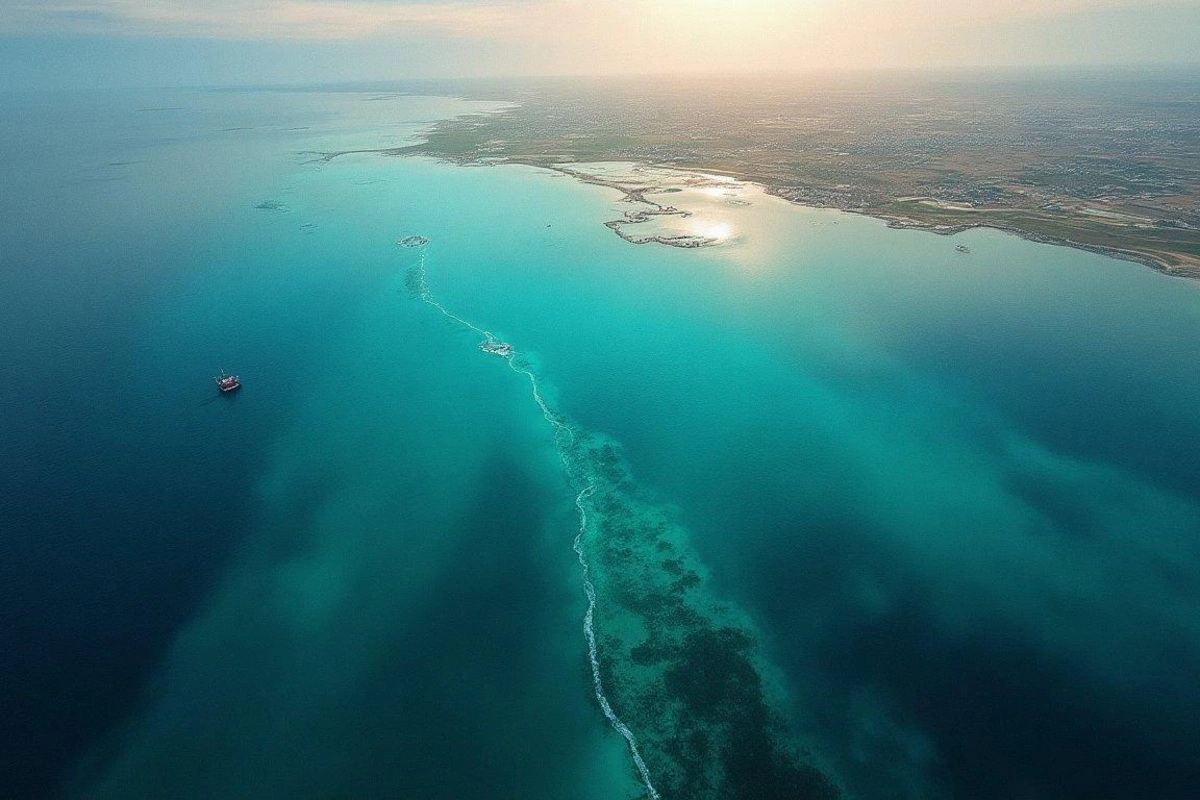Mysteries of the Caspian Sea: Scientists Continue to Explore the Unique Water Body of Eurasia

The Caspian Sea - the world's largest enclosed body of water, remains the subject of scientific disputes and geopolitical attention. Despite centuries of research, this region holds many mysteries - from geological features to ecological anomalies and unclear international status.
Geography and Origin
The Caspian Sea, with an area of about 371,000 km², washes the shores of five countries: Azerbaijan, Russia, Kazakhstan, Turkmenistan, and Iran. Although it is called a sea, from a geological perspective, it is rather a salt lake with a closed hydrosystem.
The origin of the water body causes disputes: according to one theory, it is a remnant of the ancient Tethys Ocean, according to another - the result of a tectonic depression. Scientists from the Institute of Oceanology of the Russian Academy of Sciences and the Caspian Ecological Center in Baku point to the presence of deep faults and unstable seismic activity, especially in the southern part of the water area.
Mysterious Phenomena
Among the most discussed anomalies:
-
Periodic changes in water level. Since the beginning of the 20th century, the Caspian has been rising and then sharply becoming shallow. For example, from 1978 to 1995, the water level rose by almost 2.5 meters, which led to flooding of coastal areas. Since 2005, a steady decrease in the level by an average of 7 cm per year has been recorded, which is associated with global warming and a decrease in inflow from the Volga.
-
Gas emissions. In 2021, a gas flare, presumably methane, was recorded off the coast of Baku, which caused a short-term "pillar of fire." Similar phenomena were previously observed in 2015 and 2010, but their nature has not been fully established. Some experts believe that this is related to underwater mud volcanoes.
-
Fauna and flora. The Caspian is characterized by a high level of endemism. Unique species such as beluga, sturgeon, and Caspian seal live here. In recent years, biologists have reported a decline in population numbers, especially of sturgeons, despite the ban on fishing in most coastal states.
Political and Legal Status
Until 2018, the status of the Caspian remained unresolved. On August 12, 2018, the Convention on the Legal Status of the Caspian Sea was signed in Aktau (Kazakhstan) by the heads of the five coastal states. The document established that:
-
the bottom and subsoil are divided into sectors;
-
the surface is used jointly for navigation;
-
the placement of foreign military bases is prohibited.
Nevertheless
Similar News
Why we compare ourselves to others and how it affects confidence
Comparing ourselves with others is a natural process that accompanies each of us. Even in childhood, we notice who runs faster, studies better, or receives more...




 Azərbaycanca
Azərbaycanca  По-русски
По-русски  English
English 






